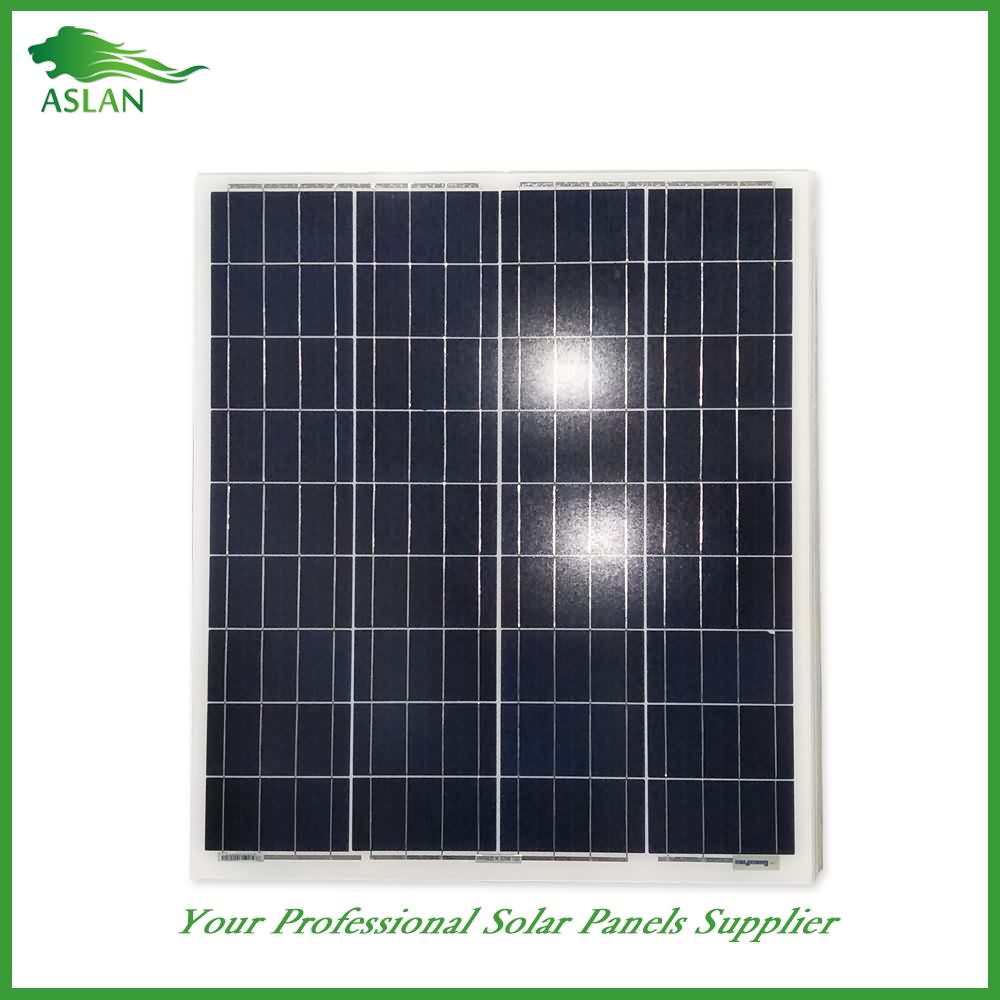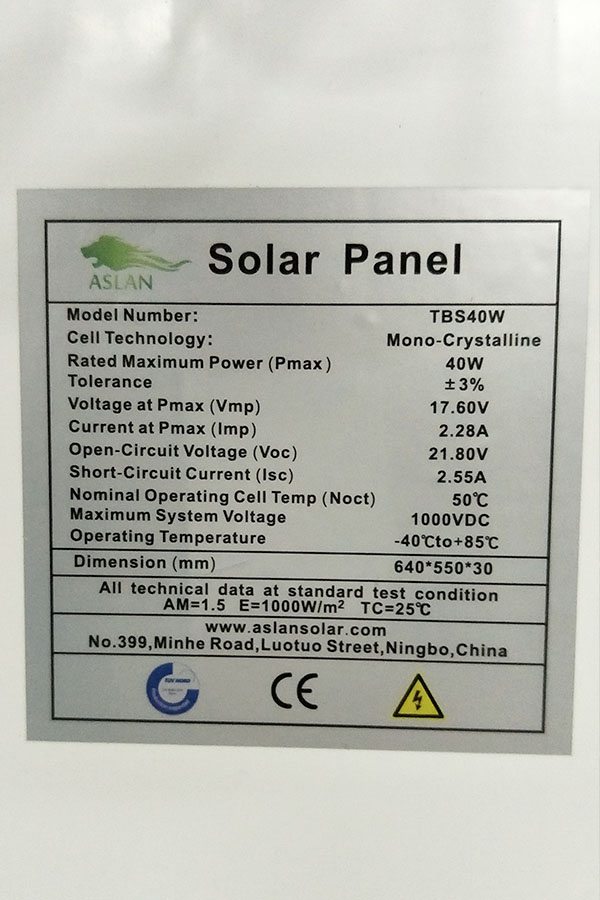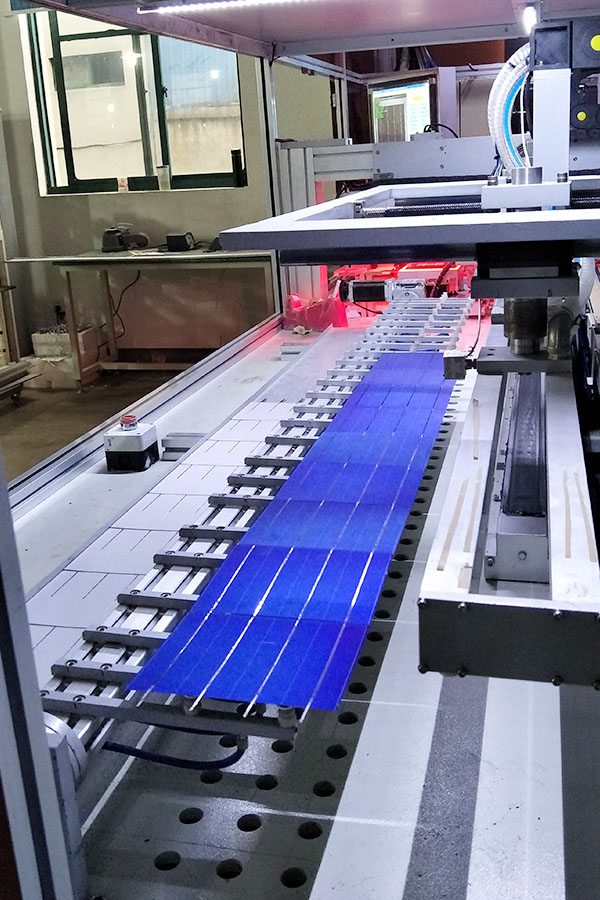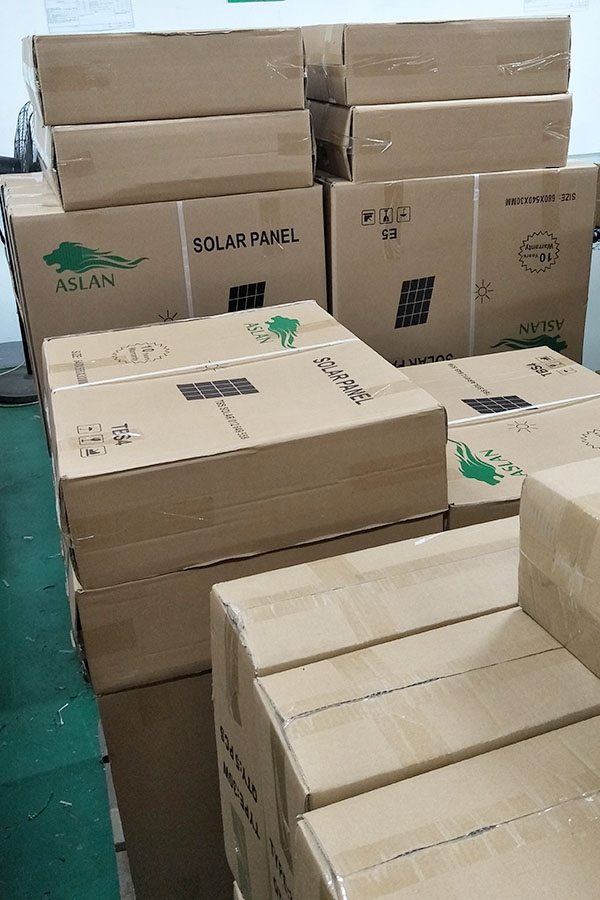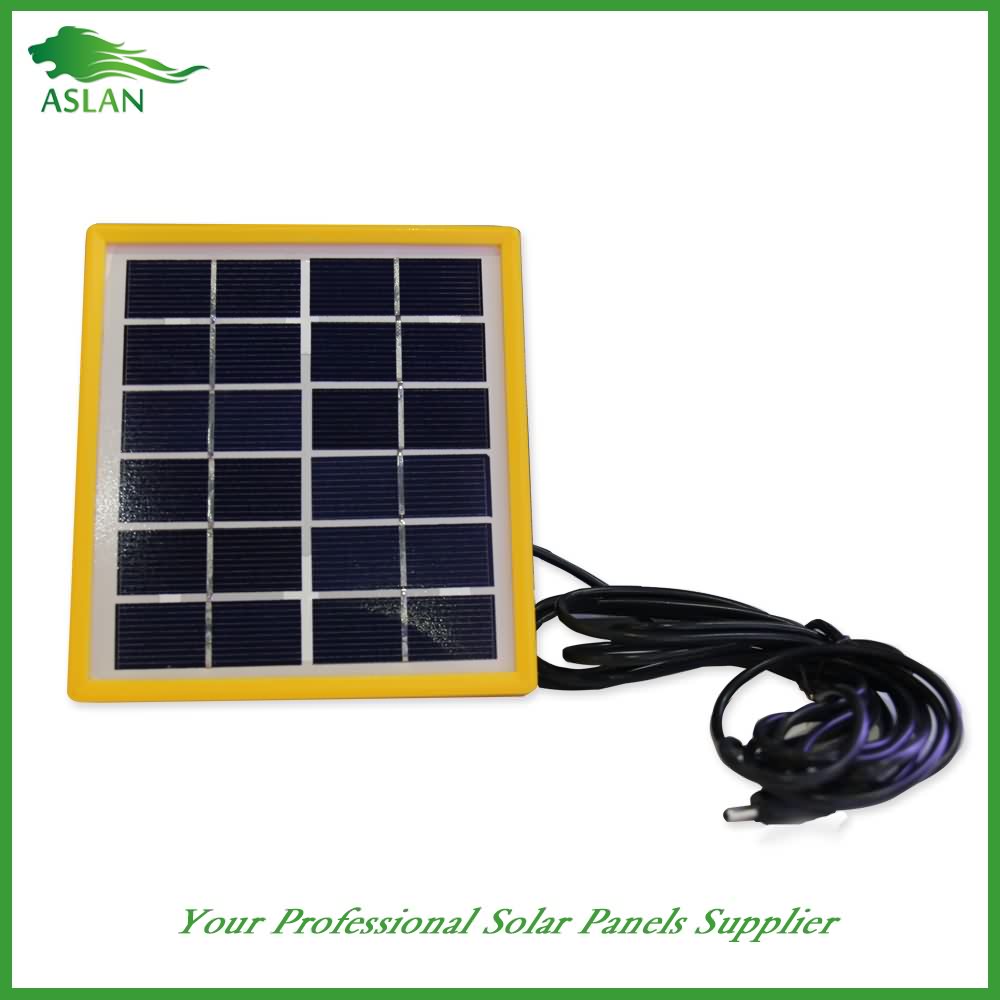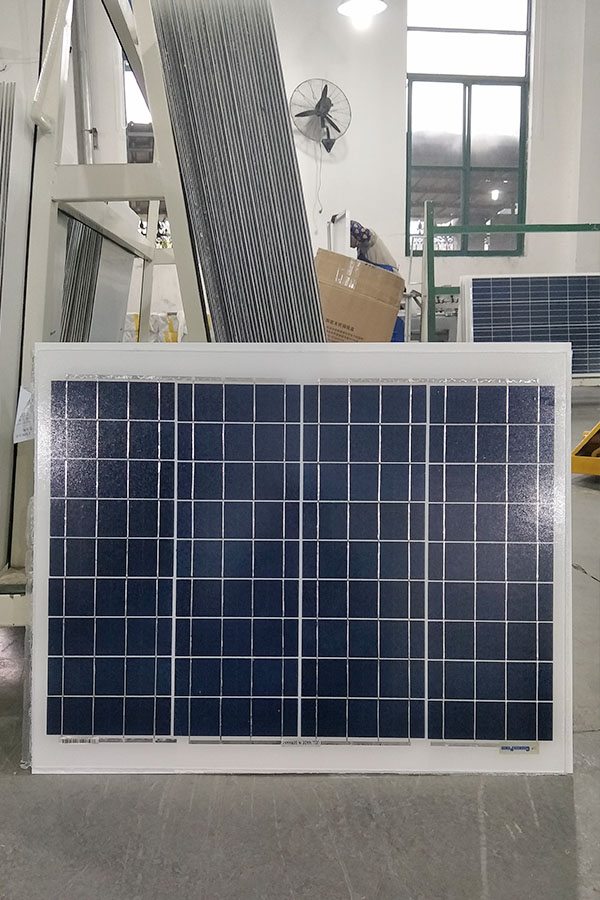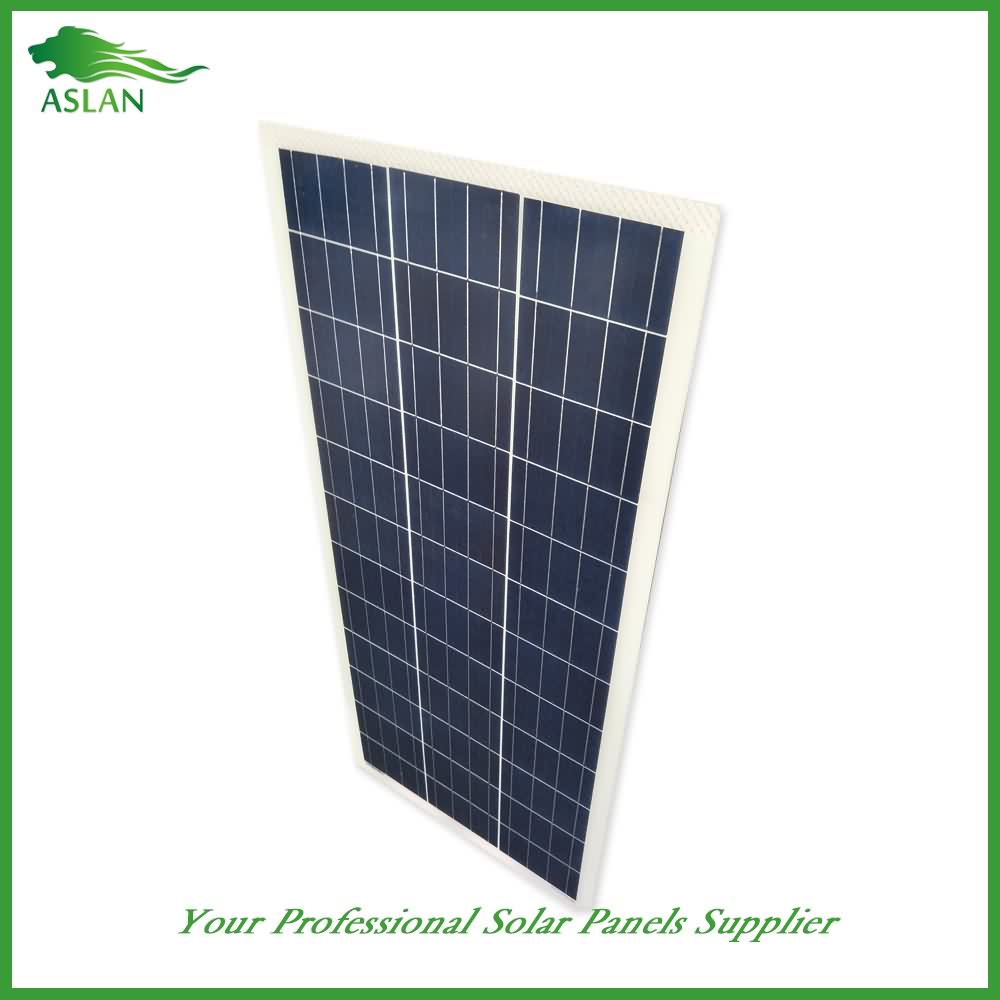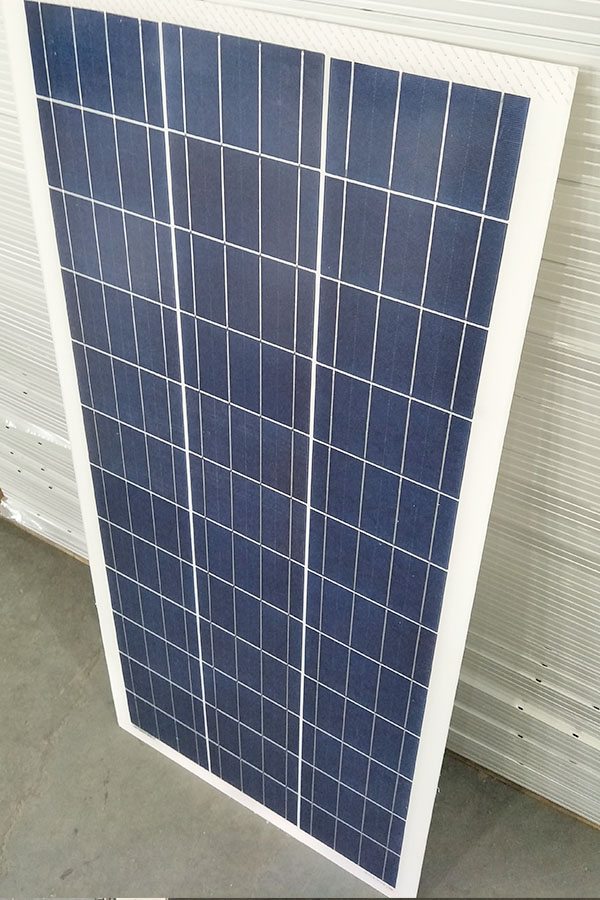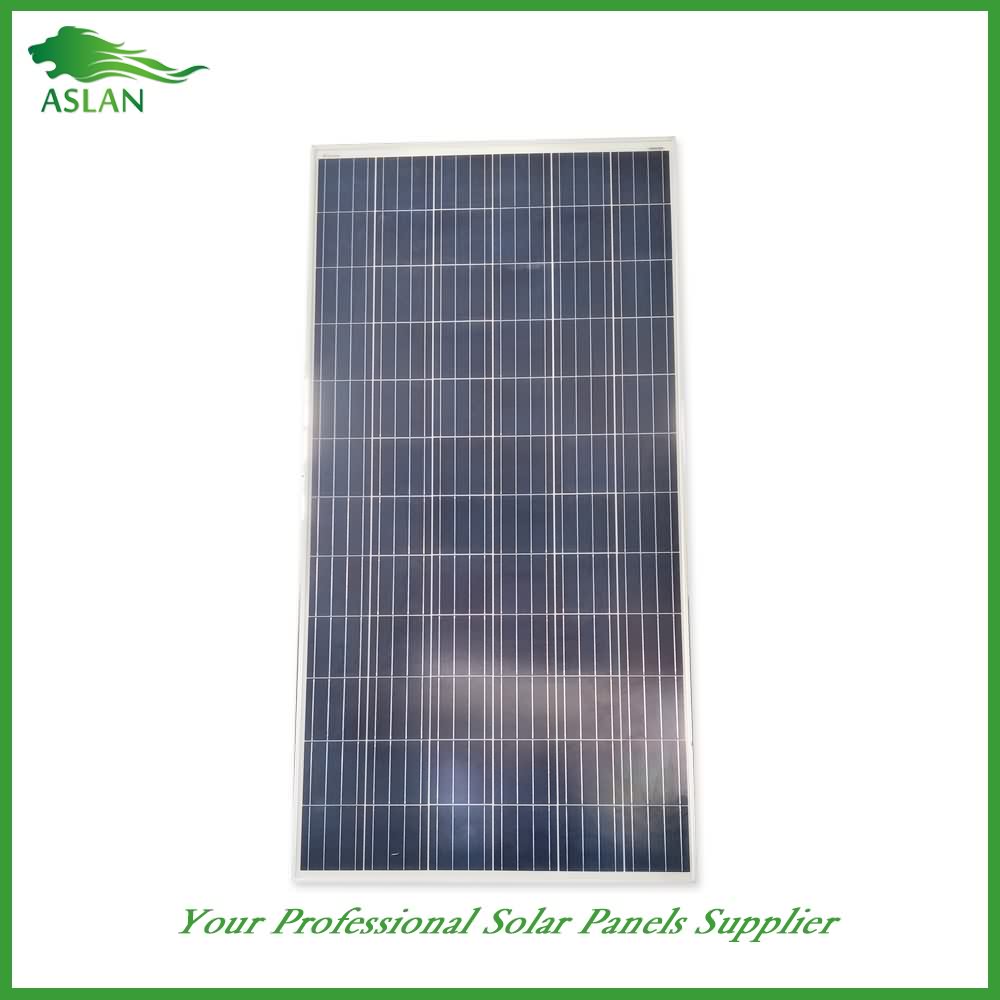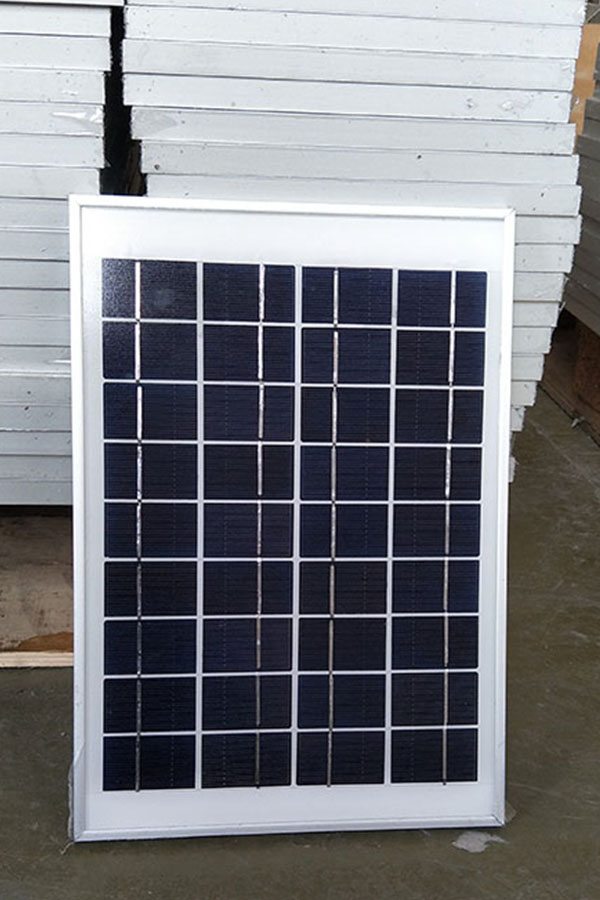Manufacturer of Poly-crystalline Solar Panel 60W Wholesale to Hungary
Short Description:
Our eternal pursuits are the attitude of "regard the market, regard the custom, regard the science" and the theory of "quality the basic, trust the first and management the advanced" for Manufacturer of Poly-crystalline Solar Panel 60W Wholesale to Hungary, We have confident that we can provide the high quality products at resonable price, good after-sales service to the customers. And we will create a bright future.
Poly-crystalline Solar Panel 60W
Technical parameter
Maximum Power(W) 60W
Optimum Power Voltage(Vmp) 17.35V
Optimum Operating Current(Imp) 3.46A
Open Circuit Voltage(Voc) 21.16V
Short Circuit Current(Isc) 3.80A
Mechanical Characteristics
Cell Type Poly-crystalline 156 x 65mm
No of Cell 36 (4x9pcs)
Dimensions 678x657x35mm
Weight 5.0Kg
Front Glass 3.5mm,High Transmission, Low Iron,Tempered Glass
Junction box IP65 Rated
Output Cable TUV 1×4.0mm2/UL12AWG,Length:900mm
Temperature and Coefficients
Operating Temperature(°C): -40°C ~ + 85°C
Maximum System Voltage: 600V(UL)/1000V(IEC) DC
Maximum Rated Current Series: 15A
Temperature Coefficients of Pmax: -0.47%
Temperature Coefficients of Voc: -0.389%
Temperature Coefficients of Isc: 0.057%
Nominal Operationg Cell Temperature (NOCT): 47+/-2°C
Materials of solar panel
1).Solar Cell——Poly-crystalline solar cell 156*65mm
2).Front Glass——-3.2mm, high transmission, low iron, tempered glass
3).EVA——-excellent anti-aging EVA
4).TPT——-TPT hot seal made of flame resistance
5).Frame——anodized aluminum profile
6).Junction Box——-IP65 rated, high quality, with diode protection
Superiority: high quality anodized aluminum frame, high efficiency long life, easy installation, strong wind resistance, strong hail resistance.
Features
1. High cell efficiency with quality silicon materials for long term output stability
2. Strictly quality control ensure the stability and reliability, totally 23 QC procedures
3. High transmittance low iron tempered glass with enhanced stiffness and impact resistance
4. Both Poly-crystalline and Mono-crystalline
5. Excellent performance in harsh weather
6. Outstanding electrical performance under high temperature and low irradiance
Quality assurance testing
Thermal cycling test
Thermal shock test
Thermal/Freezing and high humidity cycling test
Electrical isolation test
Hail impact test
Mechanical, wind and twist loading test
Salt mist test
Light and water-exposure test
Moist carbon dioxide/sulphur dioxide
Get your free audio book:
http://rswp.us/f/b00h473js2
Concise introduction to the basic principles of solar energy, photovoltaic (pv) systems, Pv cells, Pv measurement techniques, and grid connected systems, overviewing the potential of Pv electricity for students and engineers new to the topic Starting with the basic principles of solar energy, this practical text explains the fundamentals of semiconductor physics and the structure and functioning of the solar cell. It describes current measurement techniques for solar modules, and the planning and operation of grid-connected and off-grid Pv systems. Key features: clarifies the technical and economic perspectives of Pv energy generation, whilst providing an overview on the current economic status discusses the future development of Pv, including efficient promotion instruments and price development each chapter contains various exercises and descriptive examples, with operation results from concrete Pv plants an accompanying website hosting exercise solutions, links to further Pv references, and free of the figures and additional software www.textbook-pv.org This is an essential text for renewable energy students, technicians and engineers wanting to know how solar cells work and how to design a complete Pv plant. It is also a useful resource for Pv installers, planners, operators, consultants, financers, potential energy investors and politicians.
BINGHAMTON, NEW YORK — Researchers at Binghamton University have come up with an interesting way to harness energy, using a resource we have far too much of — bacteria.
Science Daily reports that to harness power from bacteria, scientists arranged nine bio-solar cells in a 3-by-3 pattern to form a scalable and stackable panel.
The cells use cyanobacteria, which can be found in aquatic and terrestrial habitats, as a source of clean and sustainable energy.
In the daytime, light energy absorbed by the panel causes oxygen and electrons to be released through photosynthetic reactions. When conditions are darker and no sunlight is available, the bacteria’s respiratory activities produce electrons.
5.59 microwatts were generated in 12-hour day to night cycles over a total of 60 hours.
Solar panels using a 6-by-10 configuration produce about 200 watts at a given moment. The bio-solar cells, in the same pattern, will only generate 0.00003726 watts.
The technology is not the most efficient, but with further development, it has the potential to be a more reliable energy source. Once the panel becomes functional, it could power small, wireless systems in remote areas where frequent battery changes are impractical.
The findings were reported in the paper “Biopower generation in a microfluidic bio-solar panel” which was published in the journal Sensors and Actuators B: Chemical.
—————————————-———————
Welcome to TomoNews, where we animate the most entertaining news on the internets. Come here for an animated look at viral headlines, US news, celebrity gossip, salacious scandals, dumb criminals and much more! Subscribe now for daily news animations that will knock your socks off.
Visit our official website for all the latest, uncensored videos: http://us.tomonews.com
Check out our Android app: http://bit.ly/1rddhCj
Check out our iOS app: http://bit.ly/1gO3z1f
Get top stories delivered to your inbox everyday: http://bit.ly/tomo-newsletter
Stay connected with us here:
Facebook http://www.facebook.com/TomoNewsUS
Twitter @tomonewsus http://www.twitter.com/TomoNewsUS
Google+ http://plus.google.com/+TomoNewsUS/
Instagram @tomonewsus http://instagram.com/tomonewsus
